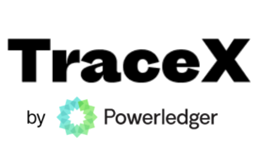Powerledger, an energy software company, has introduced a new feature in its TraceX marketplace, enabling organizations to purchase Renewable Energy Certificates (RECs) directly from renewable energy generators.
This new feature eliminates the need for businesses and organizations that buy RECs to either open their own registry account in a REC tracking system or go via intermediaries to buy RECs. Instead, they can directly buy and retire RECs in the TraceX marketplace for voluntary claims, offering a clearer understanding of the origins and costs associated with RECs.
Traditionally, buying RECs through intermediaries can be opaque, leaving buyers with limited information about where their RECs come from and their associated attributes. By connecting end customers directly with renewable energy generators, TraceX guarantees full transparency, empowering business buyers to make more informed decisions.
“Our new marketplace feature is a game-changer for businesses committed to sustainability,” said Scott Burns, VP Environmental Commodities of TraceX. “By removing the need for a registry account, we’re opening up the market to end buyers of RECs who would need to buy via an intermediary. Business customers will now have unprecedented clarity and control over their REC purchases, promoting trust and accountability in the renewable energy market.”
Key benefits of the new marketplace feature:
Direct access to generators: Business customers can purchase RECs directly from specific projects, ensuring they know exactly where their renewable energy is coming from.Transparent pricing: The platform provides clear insight into the cost of RECs, enabling REC buyers to understand the true value of their purchases.Enhanced trust and accountability: All the REC attribute data for every bundle listed is available to the buyers ahead of REC purchases, fostering confidence and trust in REC transactions and meeting specific voluntary standards.User-friendly interface: The platform is designed for ease of use, making the process of purchasing RECs straightforward and accessible to all buyers, regardless of their experience level.
The launch of this marketplace feature marks a significant step towards supporting the global transition to renewable energy. By making REC purchases easier and more transparent, TraceX helps businesses play a more active role in their ESG strategies.
“Although the US voluntary REC market is projected to grow at a steady 15.9% annual rate from 2024 to 2033, we continue to see challenges related to transparency, market access, and the risks from manual REC procurement processes. Our new marketplace feature is one of the many ways we are working to create scalable markets that meet growing sustainability targets without compromising on transparency,” said Fiona Tiller, CEO, TraceX, Powerledger.
………………………………………………………………………………………………………
About Powerledger
Powerledger is a software company leveraging blockchain, AI and Web3 to solve pressing energy challenges, enabling customers to access and trade cheaper, cleaner electricity. Powerledger’s software and features work alongside the existing infrastructure of energy systems, enabling greater control and ownership for consumers and producers alike.
Power utilities, governments, and large corporations use Powerledger’s solutions to be at the forefront of the energy transition by tracking, tracing, and trading every kilowatt hour of energy. Headquartered in Zug, Powerledger is recognised as one of the top 50 companies in Crypto Valley, Switzerland.
About TraceX
TraceX by Powerledger is an environmental commodities marketplace that uses Powerledger Blockchain to add transparency in renewable energy certificates trading. TraceX is used by generators to track Environmental Attribute Certificates (EACs) from issuance through to sale, transfer and retirement for the end buyer. Companies with ESG goals can track ownership, hold certificates for resale, or retire them to meet annual sustainability targets. TraceX is powered by cutting-edge technology to improve the reliability and transparency of energy credits.

